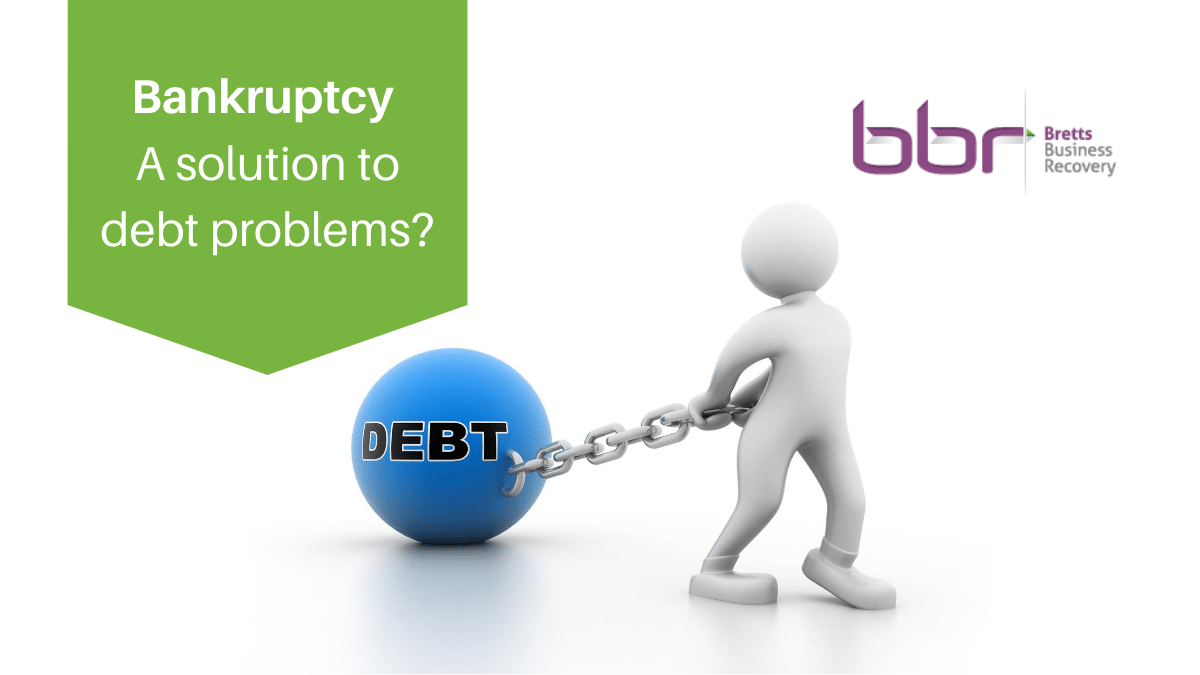Bankruptcy as a solution to debt problems

Everyone dreads being unable to pay bills but for an unlucky few debt problems can become a life-consuming reality in which bankruptcy may be the best (or only) route out.
Bankruptcy is a legal status that, in certain circumstances, may provide the most appropriate solution to clear your debt. If you have been struggling with persistent debt and have little hope of repaying what you owe, then it may be right for you.
In bankruptcy, your assets including property, your car and other items that you own are sold and the proceeds used to pay off your creditors (the people you owe money to).
If you have a high enough income, you may be asked to make monthly payments towards your debts. This is an income payment agreement (IPA) which may last for three years.
At the end of the bankruptcy, most debts are cancelled, and you will be free to make a fresh start.
What are the advantages?
Bankruptcy may enable you to:
- prevent creditors from taking legal action against you
- stop creditors or bailiffs harassing you
- write-off unsecured debt
- enable you to make a fresh start, free from debt.
- keep items that you need to enable you to continue working (exempt goods), such as your car or any tools
How will it affect me?
Initially the Official Receiver will act as trustee and manage your creditors. You must give the official receiver:
- information on your finances and income
- your bank cards, cheque books and credit cards for any accounts you’re no longer allowed to use.
- a full list of your assets.
During the process, you will also have to follow bankruptcy restrictions which limit you from:
- borrowing more than £500 without informing the lender that you are bankrupt
- acting as a director of a company without the court’s permission
- managing or promoting a company without the court’s permission
- managing a business with a different name without informing contractors and customers that you’re bankrupt
What are the longer-term effects on my life?
Bankruptcy is a significant undertaking and not without risk.
- You may lose possessions including your home, car or other items sold to clear your debt.
- If you rent your home, your landlord may end the tenancy
- The bankruptcy will be recorded on a public register
- It will have a negative impact on your credit history and your credit rating will be affected for six years.
- It could also adversely affect your job – for instance, you may not be able to work in legal and financial positions.
- If you own a business, it could be closed, and assets sold off.
- In extreme circumstances you could have a bankruptcy restriction order made against you lasting up to 15 years which will restrict your financial affairs.
How does it work?
You can make an application for bankruptcy yourself or, if you owe over £5,000, creditors can ask a court to make you bankrupt.
Once a court decides a debtor may be made bankrupt, their assets come under the control of the Official Receiver.
If the bankrupt has assets, the Official Receiver can call a meeting of creditors to appoint a Trustee in Bankruptcy, who must be a Licensed Insolvency Practitioner.
Your interest in the home that you live in will form part of your estate which will be managed by the trustee. Your home or the share that you own may have to be sold to go towards paying your debts.
If you have excess income, this may be used to pay off the debts over a three-year period.
What does it cost?
The trustee is responsible for realising the bankrupt’s assets, settling the costs of the bankruptcy including the costs of the Official Receiver, and distributing funds to creditors.
There are three fees you must pay when you take your petition and statement of affairs to the court:
- a deposit of £550 for the Official Receiver to administer the process
- a court fee of up to £130
If the bankruptcy is instigated by creditors, these fees (and others) are paid by them.
What other options are available?
Whilst bankruptcy only normally lasts a year, the longer-term effects on your credit and financial status can be considerable.
There are many debt solutions and different ways to resolve a debt problem, so, if you have a choice in the matter, it’s a good idea to consider other ways to manage the debt.
Other alternatives include negotiating with your creditors:
- informally (arranging new payment terms yourself or through a debt management firm)
- formally through
- an individual voluntary arrangement (IVA)
- administration order or
- a debt relief order (where the debt is less than £20,000 and there are no assets and no prospect of the situation improving).
Where can I get advice on my finances?
Don’t suffer in silence – there are many options open to you and the earlier you talk to someone the better. We offer a free initial consultation – contact us to find out how we can help you.
Complete the form below or call us on freephone 0808 168 7540 to make an appointment.
Other sources of help and advice include:
- Citizens Advice – a UK free advice service: https://www.citizensadvice.org.uk/debt-and-money/
- StepChange – a UK debt charity: https://www.stepchange.org/
- uk – Government website detailing bankruptcy procedures: https://www.gov.uk/bankruptcy